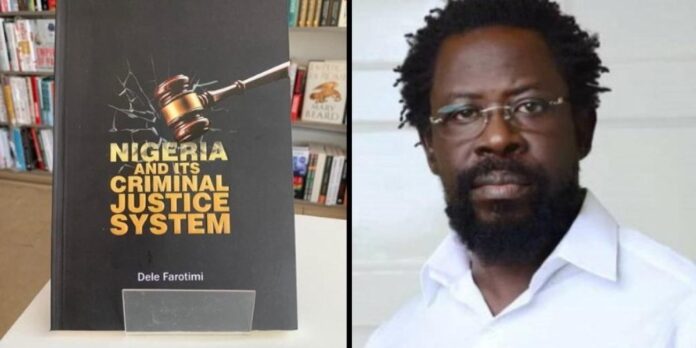A Federal High Court in Abuja, on Tuesday, issued an urgent court order to stop the distribution of the controversial book Nigeria and Its Criminal Justice System by lawyer and author Dele Farotimi.
The court issued an interlocutory injunction, meaning it is a temporary order that blocks further publication, sale, or distribution of the book until the court hears the full case.
Kehinde Ogunwumiju (SAN), representing Babalola’s legal team, led the application in the Federal High Court under suit number CV/5372/2024.
According to the ruling, the injunction specifically restricts Farotimi and his agents, including major retailers like Amazon, Rovingheights, and Booksellers, from selling both the physical and digital copies of the book.
The court also ordered the immediate seizure of all copies of the book, ensuring that it cannot be sold or distributed in any form until further notice.
This ruling follows the international success of Farotimi’s book, which recently made headlines by topping Amazon’s global politics bestseller list.
The book, which critiques Nigeria’s judicial system, has sparked heated debates. It sheds light on alleged corrupt practices within the Nigerian judiciary, accusing prominent legal practitioners, including Afe Babalola himself, of manipulating the system.
The claims against Babalola, a well-known legal figure in Nigeria, have reportedly prompted swift legal action to halt the book’s distribution.
The injunction also extends to blocking royalties earned from the book’s sales, effectively freezing any earnings related to the publication until the court determines the outcome of the case.
For many, the ruling signals a significant moment in the ongoing battle over freedom of speech and the power of the Nigerian legal elite.
Afe Babalola, known for his significant influence in Nigeria’s legal and political circles, has not hidden his disapproval of Farotimi’s book.
The allegations made by Farotimi about Babalola and other legal figures have fueled a storm of controversy, particularly over claims that the Nigerian justice system is manipulated by powerful individuals.
Babalola’s legal team, led by Ogunwumiju, argued that Farotimi’s book contained defamatory statements that could harm Babalola’s reputation and that of others mentioned in the book.
“We had no choice but to take legal action in the interest of justice and the protection of reputations,” Ogunwumiju said after the court ruling.
Farotimi’s book has stirred widespread discussion about the state of Nigeria’s judiciary. The author, who is a prominent lawyer and activist, has long been critical of the country’s legal system. His publication, while controversial, has resonated with many Nigerians who share his frustrations with the system.
In his book, Farotimi alleges that corruption, political interference, and power struggles undermine the integrity of the judiciary.
While the book has found a broad audience, particularly among Nigerians and those interested in African legal affairs, it has not been without its critics. Babalola and others within the legal profession argue that the allegations are baseless and damaging to the credibility of the legal system.
The injunction, which has global implications due to the book’s popularity on platforms like Amazon, raises important questions about the balance between freedom of expression and the protection of individuals’ reputations.
The court’s decision to halt the sale of Nigeria and Its Criminal Justice System has amplified tensions surrounding the Nigerian judiciary’s role in handling sensitive legal issues.
Farotimi’s book, which had already caused a stir in legal and academic circles, now faces an uncertain future.
The court order also highlights the power that wealthy and influential legal figures hold over the distribution of critical content, especially when it comes to topics that directly affect their interests.
Legal experts are watching closely to see how this case develops, as it could set a precedent for future legal battles involving freedom of speech and publication in Nigeria.

